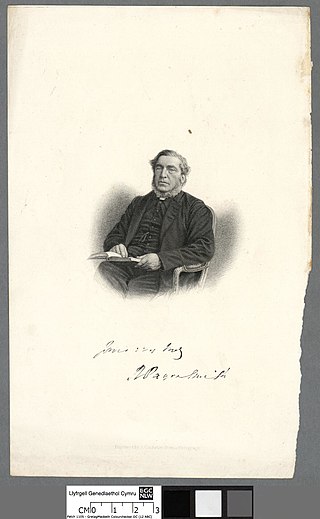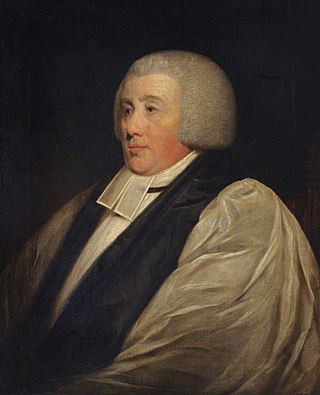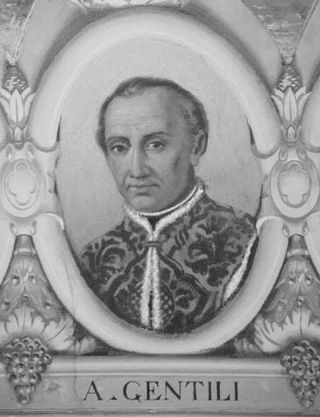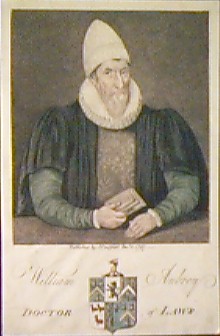Related Research Articles

Pembroke College, a constituent college of the University of Oxford, is located on Pembroke Square, Oxford. The college was founded in 1624 by King James I of England and VI of Scotland, using in part the endowment of merchant Thomas Tesdale, and was named after William Herbert, 3rd Earl of Pembroke, Lord Chamberlain and then-Chancellor of the University.
The Regius Professorships of Divinity are amongst the oldest professorships at the University of Oxford and the University of Cambridge. A third chair existed for a period at Trinity College Dublin.

Sir James Ramsay Montagu Butler, was a British politician and academic. He was a member of parliament for Cambridge University from 1922 to 1923. He was Regius Professor of Modern History at the University of Cambridge from 1947 to 1954, and vice-master of Trinity College, Cambridge, from 1954 to 1960. He also saw military service during both the First and Second World Wars.
Godfrey Davies was an English historian of the 17th century and member of the research staff of the Huntington Library. The Mississippi Valley Historical Review summarized his contributions by noting: "Through his published works he came to be recognized as a leading authority in seventeenth-century English history, and through his innumerable services to British and American students who have worked at the Huntington Library during the past quarter of a century he made a leading contribution not only to his own but also to many fields of historical scholarship."

Robert Payne Smith was Regius Professor of Divinity at the University of Oxford and Canon of Christ Church from 1865 until 1870, when he was appointed Dean of Canterbury by Queen Victoria on the advice of William Ewart Gladstone.

William Lort Mansel was an English churchman and Cambridge fellow. He was Master of Trinity College, Cambridge from 1798 to his death in 1820, and also Bishop of Bristol from 1808 to 1820.

Richard Smyth was the first person to hold the office of Regius Professor of Divinity in the University of Oxford and the first Chancellor of the University of Douai.
The Regius Professor of Medicine is an appointment held at the University of Oxford. The chair was founded by Henry VIII of England by 1546, and until the 20th century the title was Regius Professor of Physic. Henry VIII established five Regius Professorships in the University, the others being the Regius chairs of Divinity, Civil Law, Hebrew and Greek. The Regius Professor of Clinical Medicine is always a member of Christ Church.
Robert Lougher was a Welsh clergyman, lawyer and politician who sat in the House of Commons in 1572. He was twice Principal of New Inn Hall, Oxford.

The Regius Chair of Civil Law, founded in the 1540s, is one of the oldest professorships at the University of Oxford.

William Aubrey was Regius Professor of Civil Law at the University of Oxford from 1553 to 1559, and was one of the founding Fellows of Jesus College, Oxford. He was also a Member of Parliament for various Welsh and English constituencies between 1554 and 1592.
Richard Lawrence Hunter FBA is an Australian classical scholar. From 2001 to 2021, he was the 37th Regius Professor of Greek at the University of Cambridge.
William Holmes D.D. was an English academic, Vice-Chancellor and Regius Professor of Modern History of the University of Oxford. He was also Dean of Exeter between 1742 and 1748.

John Young (1514–1580) was an English Catholic clergyman and academic. He was Master of Pembroke Hall, Cambridge, and was later imprisoned by Elizabeth I. He is not John Young (1534?–1605), Master of Pembroke Hall later in the century, and afterwards Bishop of Rochester.

Henry Langley (1611–1679) was an English clergyman and academic, intruded Master of Pembroke College, Oxford, and later an ejected minister and nonconformist tutor.

Donald Struan Robertson was a classical scholar, particularly noted for his work on Apuleius, and for 22 years the Regius Professor of Greek at the University of Cambridge. He was the father of the classicist Charles Martin Robertson and the art historian Giles Henry Robertson, and the brother of the botanist Agnes Arber.
John Warner was an English academic, cleric, and physician. He was the first Regius Professor of Physic at the University of Oxford, as well as the Vice-Chancellor of the University of Oxford and the Dean of Winchester.
Sir Thomas Clayton, known in his father's lifetime as Thomas Clayton the Younger, was an English physician and professor of medicine who sat in the House of Commons in 1660.
George Joyliffe (1621–1658), sometimes Latinised as Iolivius or Jolivius, was an English anatomist and physician. He discovered the lymphatics of the liver in collaboration with Glisson and was one of three to have discovered the lymphatic system independently at about the same time.